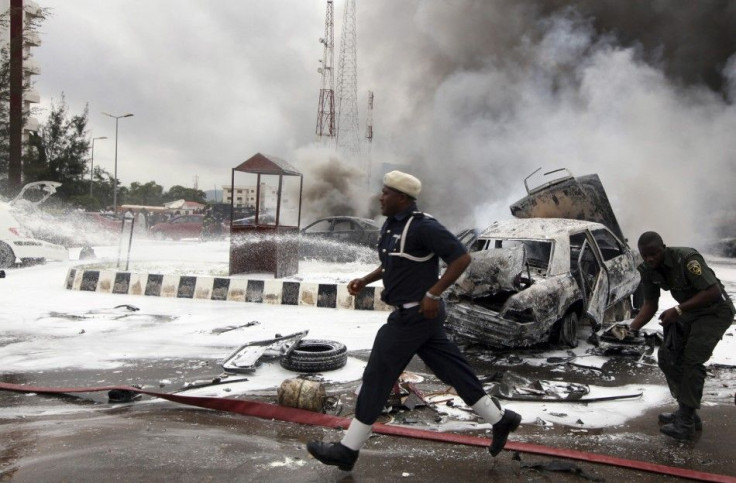Islamist Group Takes Credit For Nigerian Bombings

Two bombs exploded in Nigeria Thursday, leaving at least nine dead and others injured. The two separate, but considered linked, incidents occurred in the capital city of Abuja and in Damboa, about 800 kilometers away.
Nigerian authorities are blaming the attacks on jihadist group Boko Haram, a Nigerian militant organization responsible for a number of attacks in the country throughout the last two years.
Both of Thursday's bombings targeted police institutions, a growing trend among extremists. In Abuja, the blast killed five people when it was detonated in the parking lot of state police headquarters.
There were body parts all over the place, Yushua Shuaib, a spokesman for the National Emergency Management Agency told Bloomberg. We suspect it was a suicide bomber who was apparently targeting the inspector general.
It is thought to be the first suicide bombing to occur in Nigeria.
A note claiming to be from the radical Islamic group was distributed after the bombing. It read We are responsible for the bomb attack on the police headquarters in Abuja, which was to prove a point to all those who doubt our capability.
Boko Haram said they were targeting police inspector-general Hafiz Ringim, and warned that more bombings were to come. Ringim was not harmed by the attack.
In the northeast city of Damboa, a second bomb went off at a house close to police headquarters. Four children were killed. Three weeks ago in Damboa, gunmen thought to be part of Boko Haram attacked police barracks and a local government building.
The name Boko Haram translates to non-Islamic education is a sin. The group is thought to be behind a number of other attacks in Nigeria, Africa's most populous nation, including market bombings and political assassinations. The group wants to make Nigeria an Islamic state.
© Copyright IBTimes 2024. All rights reserved.











